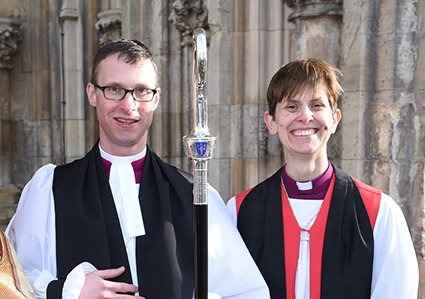Sheffield debacle shows CofE needs to promote more traditionalists, campaigners say
The Church of England is being called to address a 'deficit' in the number of traditionalists in senior positions after a review into why one bishop felt forced to step back from a promotion.
The Bishop of Burnley, Philip North, from the CofE's Anglo-Catholic wing, was appointed Bishop of Sheffield in February only to withdraw from the appointment in the wake of fierce criticism over his opposition to women priests.

An investigation by Sir Philip Mawer into events surrounding his resignation was published on Friday. It said the Church needed to revisit a compromise settlement made in 2014 to try and hold together those who support and reject women's ordination.
But a conservative grouping within the CofE, of which North is a part, said the Church should respond by appointing more traditionalists to senior positions to ensure a full spectrum of views is represented.
'In the last three years – and indeed for some time before that – no priest who publicly espouses the traditional catholic position on holy orders has been appointed as an archdeacon, dean, or residentiary canon in the Church of England,' a statement from Forward in Faith's chair the Bishop of Wakefield, Tony Robinson, said.
'A positive response to Sir Philip's challenge [in the report] will only be credible if the House of Bishops and its individual members successfully address this deficit.'
The compromise agreement, known as the five guiding principles, allowed laws permitting women bishops to pass the CofE's synod but promised 'mutual flourishing' for those who opposed female ordination.
Forward in Faith welcomed Sir Philip's challenge that bishops revisit the settlement and said: 'Much of Forward in Faith's work over the last three years has been directed towards building up The Society as a structure offering those who cannot receive the sacramental ministry of women as bishops and priests both sacramental assurance and a context of full communion.
'This has been done not from a desire for separation, but in order to enable us to engage with confidence, from a position of security and support, in the wider life of the Church of England.'











